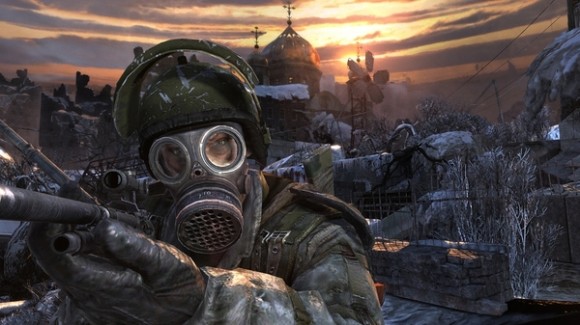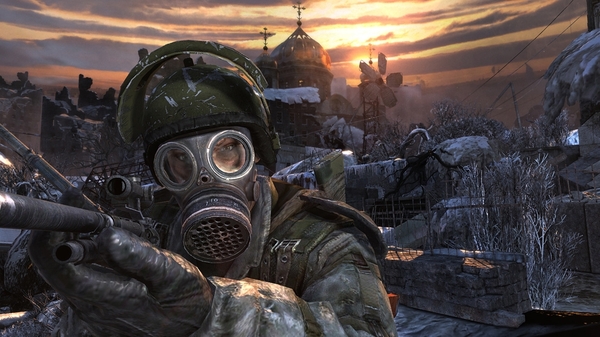 Look hands up, before I started this post apocalyptic, dystopian creative writing gig to get my lacklustre students writing, I didn’t even know what ‘dystopian’ meant, I have @jamesmichie to thank for that. It starts with the hot (if ageing) US series Flash Forward and @RealGeoffBarton’s tweets / comments ringing in my ears – steer your students towards ‘interesting’ writing styles. Interesting structure, paragraphing and sentences. Now I am sorry Geoff if that is not quite accurate but it was the learning that ‘stuck’ and a key motivation for this unit of work.
Look hands up, before I started this post apocalyptic, dystopian creative writing gig to get my lacklustre students writing, I didn’t even know what ‘dystopian’ meant, I have @jamesmichie to thank for that. It starts with the hot (if ageing) US series Flash Forward and @RealGeoffBarton’s tweets / comments ringing in my ears – steer your students towards ‘interesting’ writing styles. Interesting structure, paragraphing and sentences. Now I am sorry Geoff if that is not quite accurate but it was the learning that ‘stuck’ and a key motivation for this unit of work.
The framework of episode one offers exactly that interesting framework; after all it was a big world wide hit, so it must have had something going for it. Episode one is in fact three short stories. Scene one, the calm almost picturesque setting and introduction of the lead characters, notably FBI agent Mark Benford. The middle scene is his vision of the future, a take me anywhere but make it memorable opportunity back in the class. Finally a post apocalyptic, dystopian chaos that is the result of the 2 mins and 17 second blackout.
It can be packaged as three separate short stories. It is interesting in that it is non-sequential although on the flip side a little tough for my G-C students to grasp. So we write three separate stories.
- The calm, focused on lead character, Mark Benford surrogate, and the plant of unreliable types (character fails to pay a parking ticket, tell a white light lies to family member or trust colleague. (200-300 words)
- The vision, most often this becomes a FBI, CIA, guerrilla forces type mission, with Mark Benford surrogate scene were the lead character is try to seek out the truth. Inspired by, and taken from the trailer ‘What if you were shown a glimpse of your future, and didn’t like what you saw?’ (200-300 words).
- The chaos (a useful juxtaposition to the calm), post apocalyptic, dystopian nightmare of a world in turmoil. Supported by a sneak peak at ‘I Am Legend’ the final section adds a further 200-300 words.
For everyone in my class, this non-sequential, non ‘up the story hill and down the other side’ method, was a new experience. A new and challenging way of thinking. In fact, it was so new and challenging we nearly gave up. The students were adamant that a piece of create writing must be in order, even after we watched the episode but we got there in the end. The story order therefore presented on paper as A, C and B and this was not an easy sell.
The most able students in the group (D/C) students understood it and where able to weave little clues into scene A, that were revealed in scene C, that went onto explain their lead characters behaviour in scene B. Most just wrote the three short but connected stories. And yet, for my predominantly male students the ‘dystopia hook,’ really hooked them. Some wrote more in scene C than they had ever written previously in an entire Controlled Assessment, adding the other two scenes, meant that for the first time in their exam career they asked for more sheets. Scene C was almost always the most interesting, and the fragmented storyline made the unbelievable, curious and distinct. Outside of my classroom, I have had quite a few students talk to me about ‘us’ playing Metro 2033 in class, some of the boys had even read the book.
I know, that with more investment, this games environment trigger could be further exploited. I have purchased both Metro 2033 and S.T.A.L.K.E.R. PC games for less than a twenty quid (Metro 2033 is available on a Humble Bundle for 11 more days) and plan to play them soon, in fact Metro 2033 is whirring away in the DVD as I type this post. I have a copy of Metro 2033 for bed time reading. Not to mention a dystopian literature and film list. There is also a Metro 2033 demo that I have used up until now and that had more than enough leverage to get the students writing.
It has not all been well received. A second experience did not go as well and the group seemed unimpressed at the time. In fact introducing Metro 2033 to the group left me a little deflated. Then tonight I received this email.
Hello Mr Still,
I saw a film today which I believe would be of great relevance to our English lessons, regarding the post-apocalyptic scenery in gameplay and movies. Anyway, this film is called “The Road”. It isn’t particularly well known, and I think a highly underrated film. I cannot find the beginning scene to it anywhere on YouTube (maybe because it is, as mentioned earlier, underrated), the first 5 minutes of the movie describe in detail, what happened, how the characters are surviving etc… but the trailer is just as good, right? Anyway, here’s the link http://www.youtube.com/watch?v=hbLgszfXTAY. I highly recommend watching this film sir, it’s pretty good regarding our current topic in English, and just a great film in general 🙂
So, with that hit of teaching adrenalin I am off to play Metro 2033
Having played for an hour or so in the name of teaching, the game atmosphere is truly gripping (subterrean, enclosed and foggy) and the soundtrack haunting. The storyline is intriguing, the location and accents adding to the mystique, although I think decelerated first by my poor XBOX controller skills and second more poor game play acumen. Metro 2033 is vearing away from a Flash Forward non-sequential narrative, but there is just a wealth of opportunity for English in the game.
- The use of game dialogue.
- The use of character speech.
- The subterrean settings; the sub-stations, public areas, political agenda, the use of pre-apocalyse items and the use of secrecy within the game. The hints of normality and the delineation of dystopia.
- The outside the metro settings. The openness and destruction of the cityscape.
- The moral dilemmas injected into game decisions.
- I am confident the design of the beasts would be an excellent exploration for descriptive writing.
Fear the future.
Just to add, this morning I had a very thought provoking Twitter conversation with AST @KerryPulleyn. Sometime we forget to ask the most obivous questions of ourselves.
@kristianstillwhat did the girls think?
— Kerry Pulleyn (@KerryPulleyn) December 2, 2012
The whole class seemed to engage with the unit, but as Kerry possible guessed, we are weighted in favour of the boys. The lessons were more lively lessons, with more contributions and contributors, but I have not yet explicitly asked the girls what they thought. I will though.
[qr_code_display]



Have you read The Road? Incredible book.
No, but it was the film that the student recommended. Got to read the first book and then maybe The Road.
Immense stuff Kristian. As you say, Metro 2033 is an atmospheric game, and a way in for the usual CoD playing crowd (i.e. boys who socialise via that rather than FB). Tim Rylands made a career out of using a terrible game as writing inspiration because of how it inspired.
And yes, to inspire via the story is something special. I find the narrative of ‘The Road’ is to be more structural than inferential (and hence more difficult to study for a C/D borderline class, imho).
So good hear from you! An update must be on the cards. Are you are gamer too?
You know you are going to have to tell me more about your experience with ‘The Road.’ It will no doubt go onto the reading list but that list is gettting longer by the week. I need to start sourcing some sample passages… Can you explain a little of what you mean by ‘more structural than inferential’ as I have not read or watched the film.
So pleased you dropped by.
Hi mate,
I’m thrilled to be reading this entry on a topic I love so much – and which provides such opportunity in teaching. I thought I’d point you to a learning programme I developed for KS3 that involves using dystopian writing as a vehicle for learning sentence-level grammar (complex sentences and the like) It’s based on the Debra Myhill, Grammar for Writing approach. I wonder if you’ve come across it?
The notion of using a game vehicle is brilliant. I wonder if you’ve come across the students who made a game of the inside of Lady MacBeth’s mind. I was impressed beyond words.
Here’s a link to that grammar thing, anyway: http://www.edutronic.net/edutronic/lessons.html
Thanks for sharing your thinking too.
Chris
As I noted via our Twitter conversation. I am very much at the bottom of this learning curve and looking to learn more. Thanks for the signposts. I look forward to continuing this conversation.